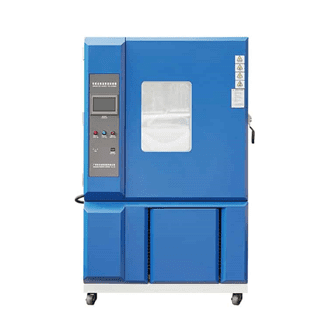
Salt spray chamber can be used to test the corrosion resistance of a wide range of materials. Here are some common materials that are tested in salt spray chambers:
- Metals: Various metals and alloys, including steel, aluminum, zinc, brass, copper, and their respective coatings, are often subjected to salt spray testing. This helps assess the corrosion resistance of these materials and evaluate the effectiveness of protective coatings or surface treatments.
- Paints and Coatings: Salt spray chambers are frequently used to evaluate the corrosion resistance of paints, enamels, powder coatings, electroplated coatings, anodized coatings, and other protective coatings applied to substrates. These tests help determine the durability and performance of coatings in corrosive environments.
- Plastics and Polymers: Certain plastics and polymer materials, such as automotive components, housing materials, or electronic enclosures, may undergo salt spray testing to assess their corrosion resistance. This is particularly important in applications where the material may be exposed to humidity or salt-laden environments.
- Electronic Components: Salt spray chambers may be utilized to test electronic components, circuit boards, connectors, and contacts for their resistance to corrosion. This is particularly relevant in industries such as automotive, aerospace, and marine, where electronic equipment may be exposed to harsh environmental conditions.
- Surface Treatments: Salt spray testing can also be employed to evaluate the effectiveness of various surface treatments and coatings, such as chromate conversion coatings, phosphating, passivation treatments, galvanizing, or anodizing. These tests help determine the quality and durability of the applied treatments.
It’s important to note that the specific test methods and duration for each material or coating type may vary based on industry standards and requirements. The results obtained from salt spray testing allow manufacturers, researchers, and engineers to assess the corrosion resistance of materials accurately and make informed decisions about product design, material selection, and corrosion protection strategies.


